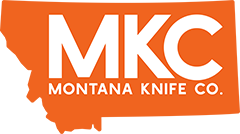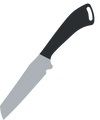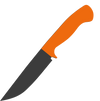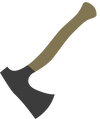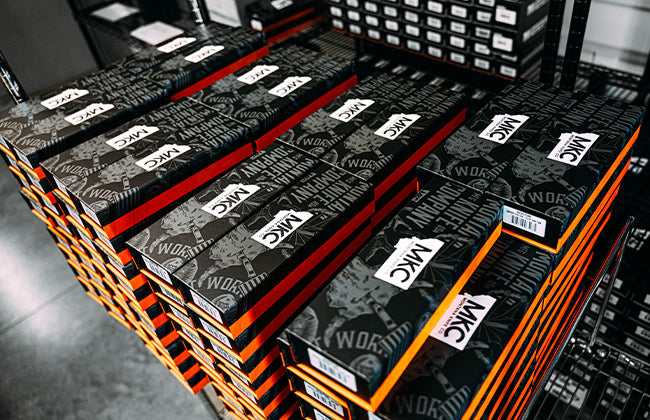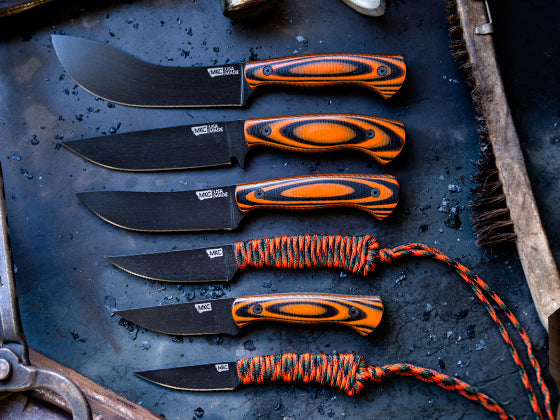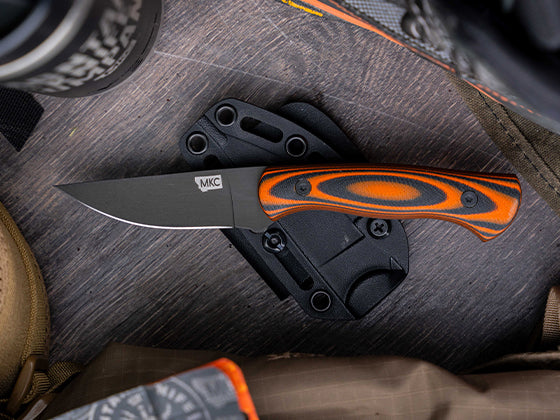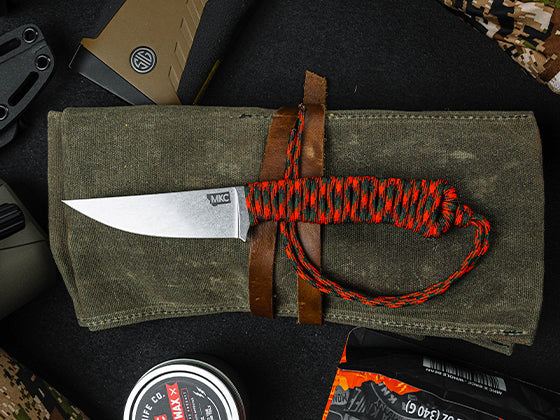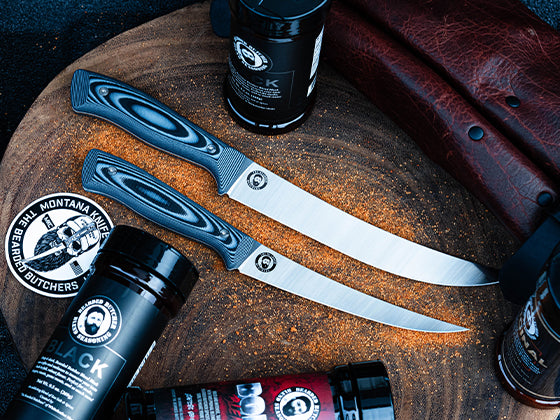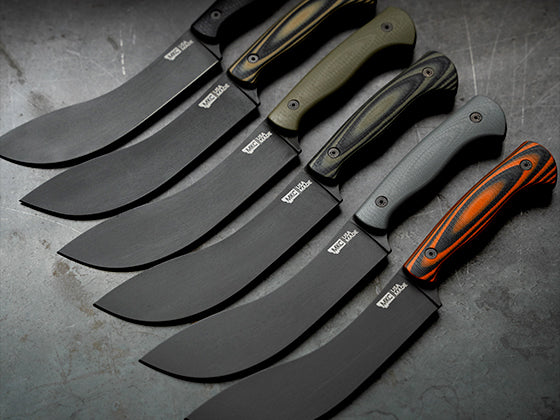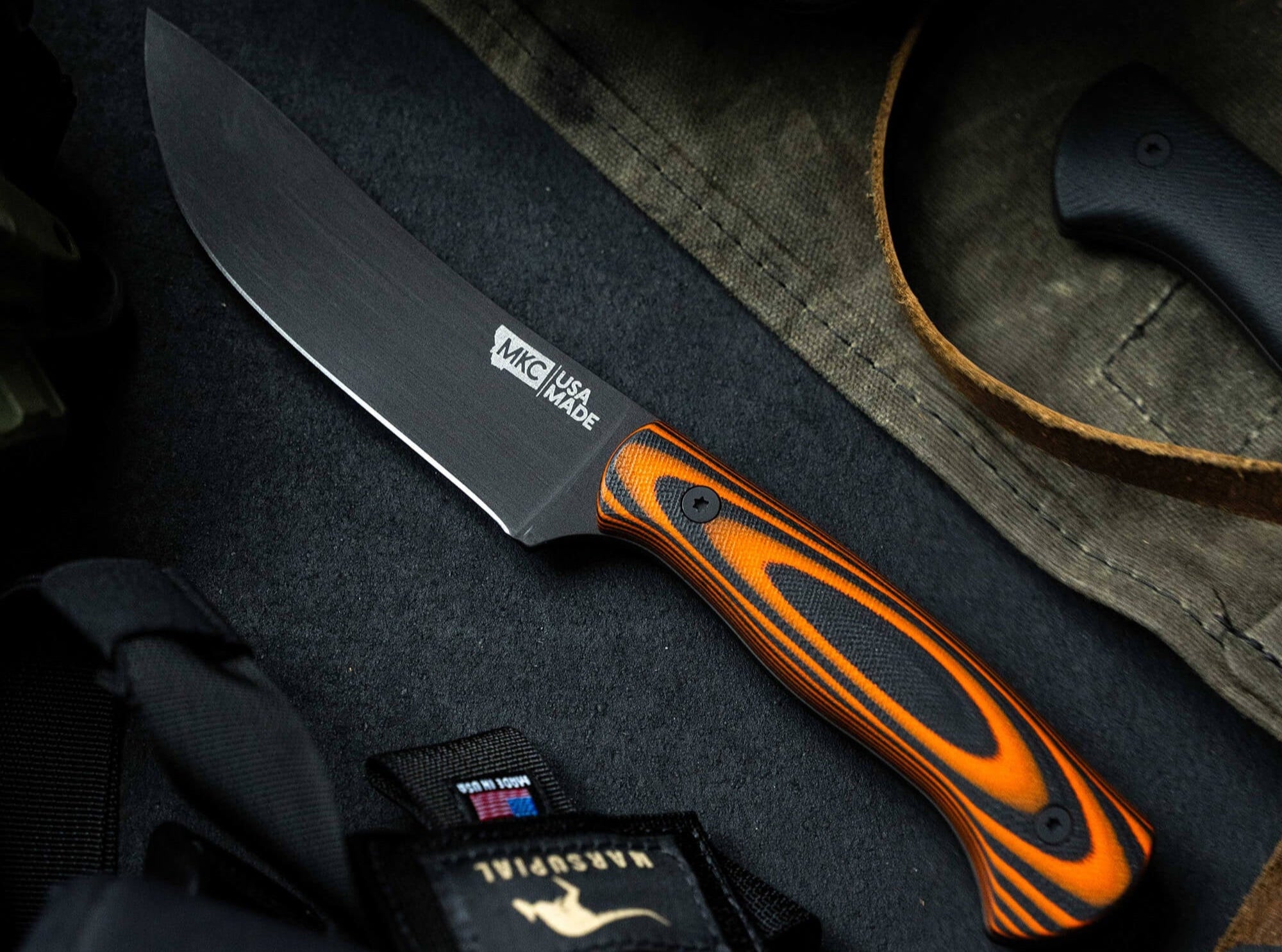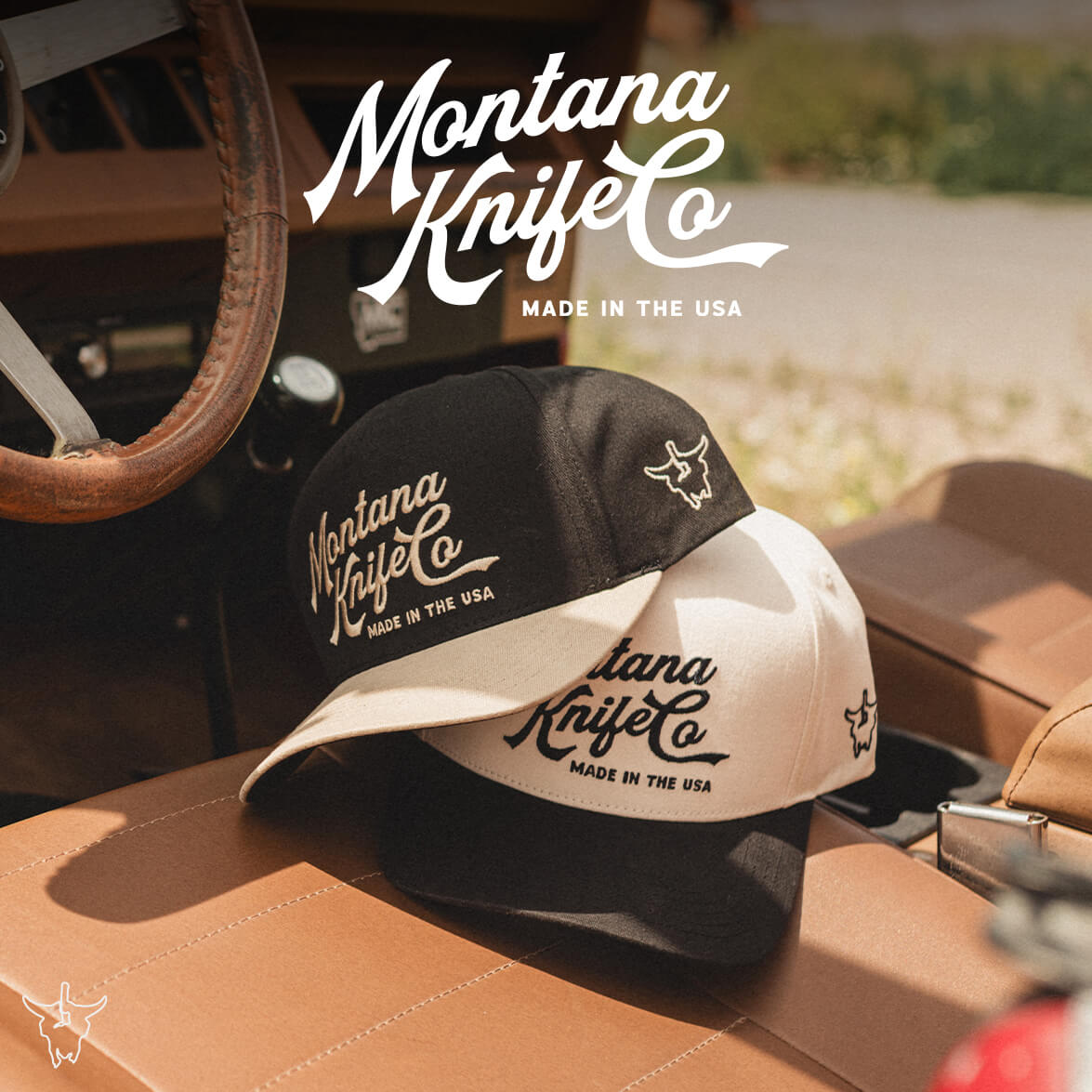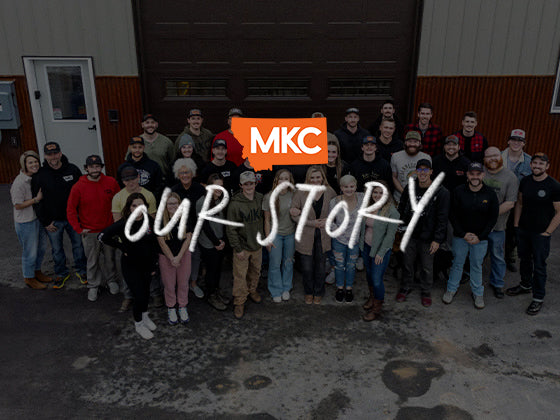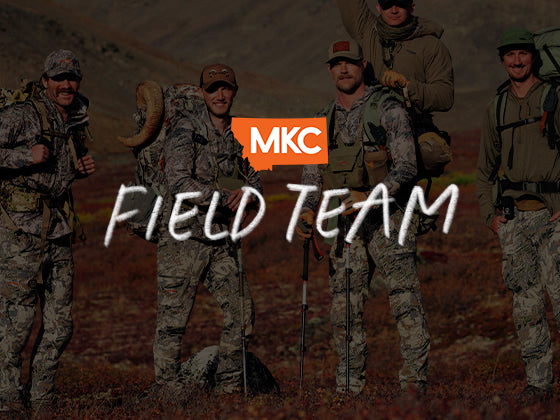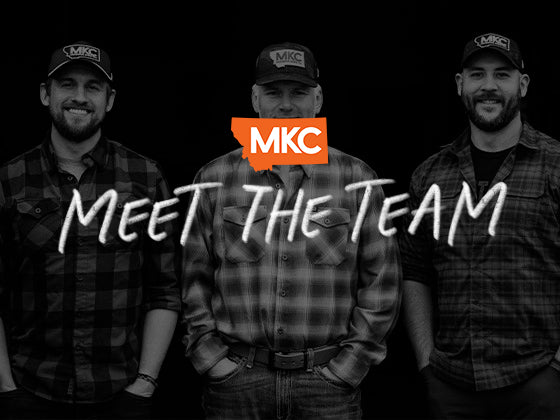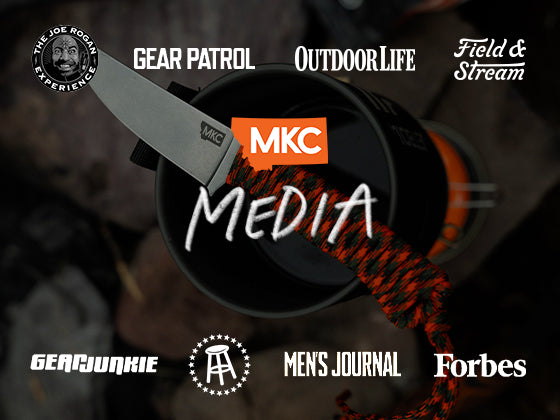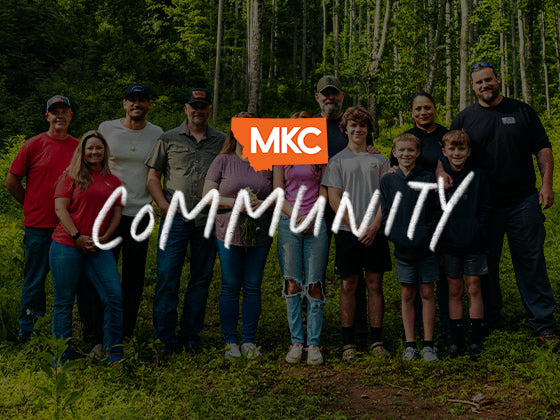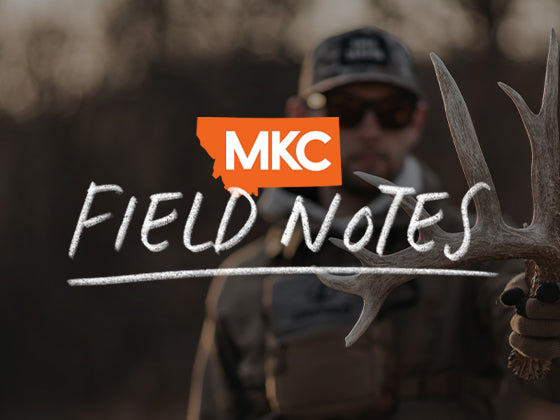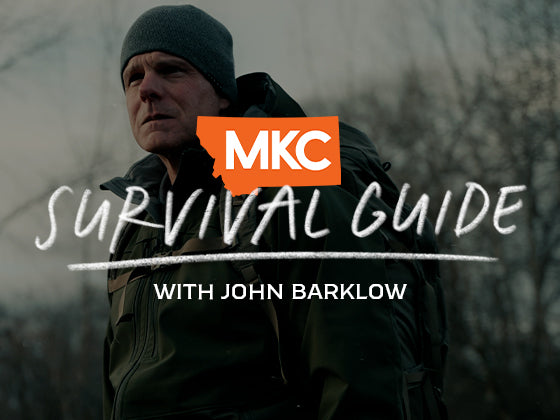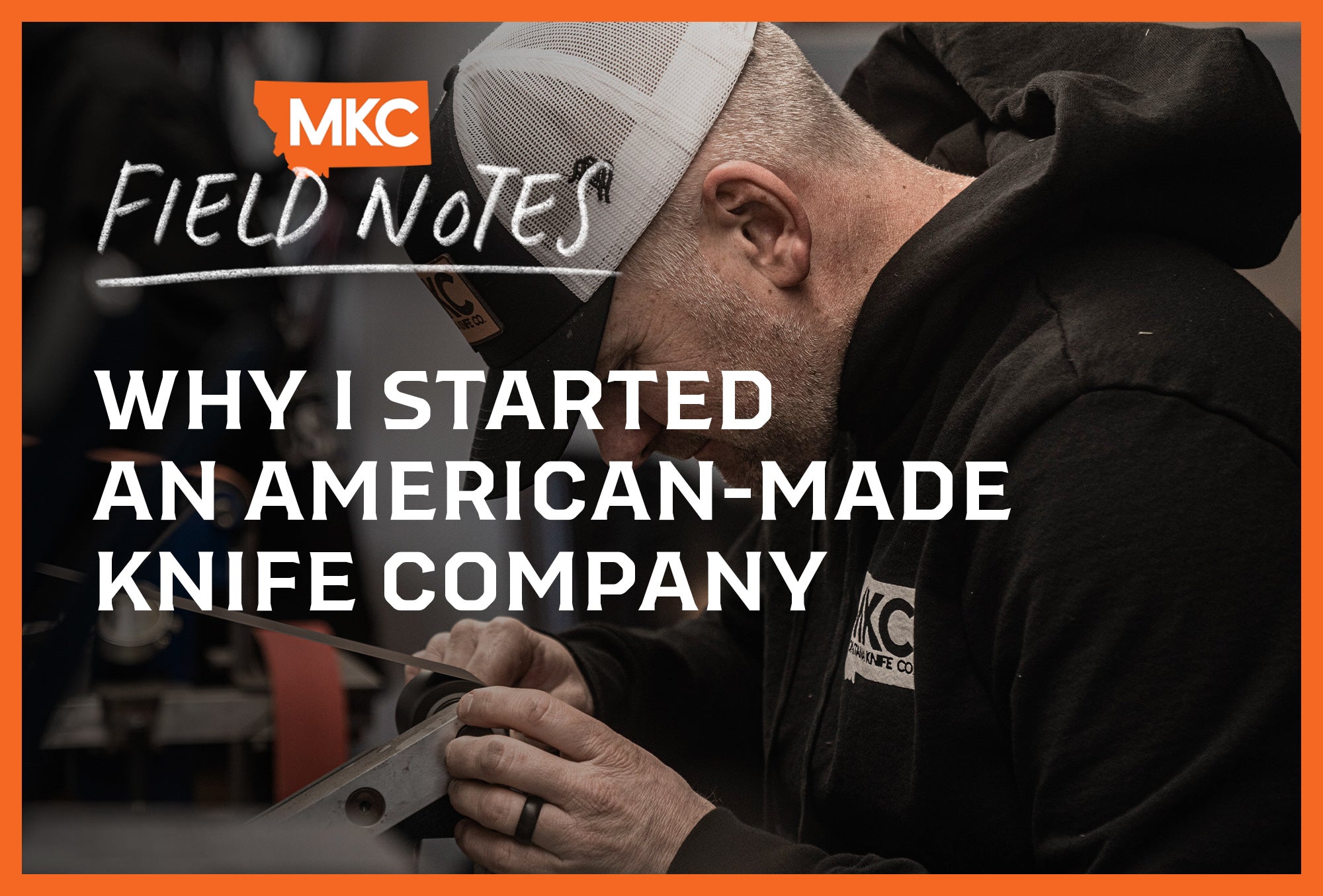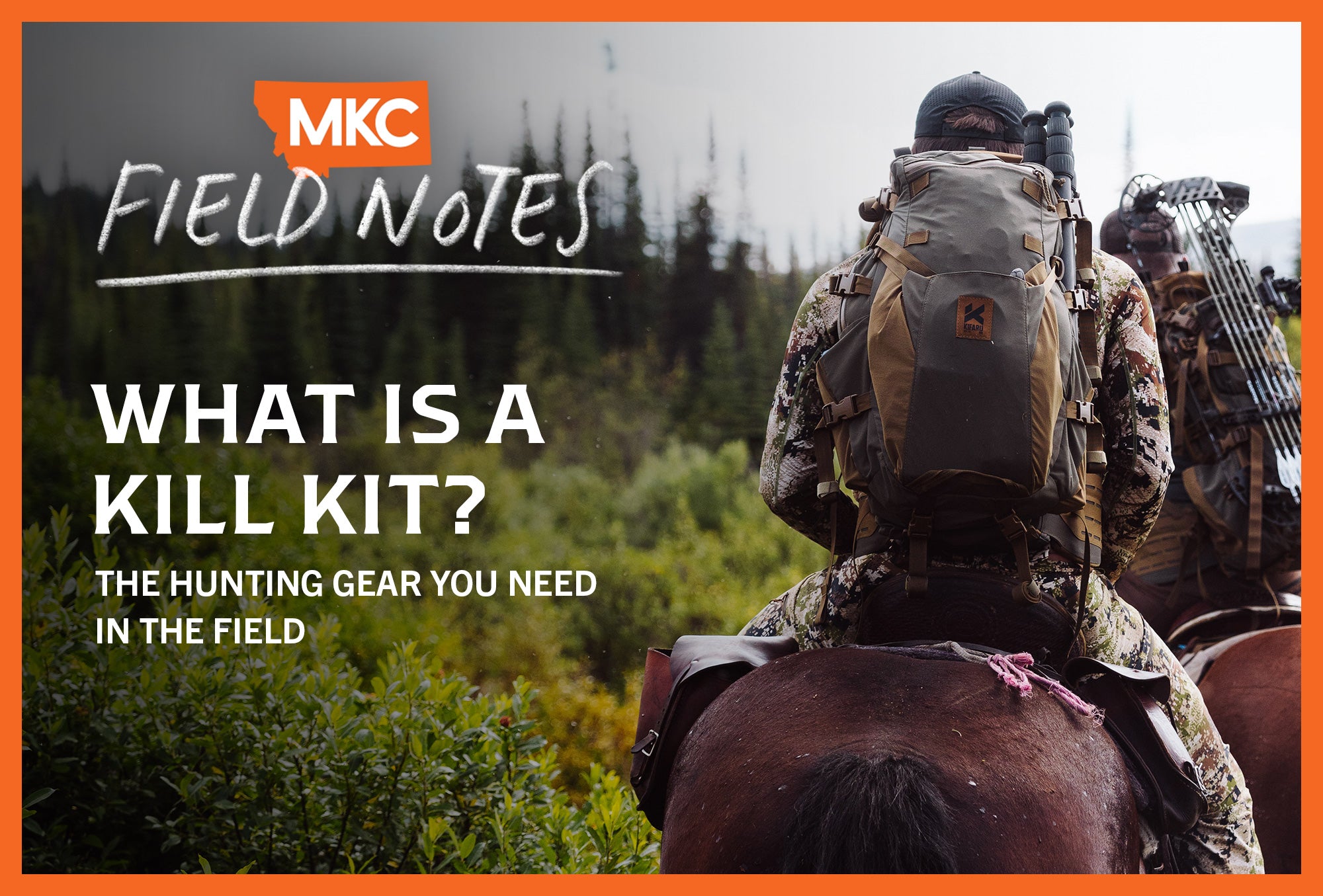As hunters, we have an active role to play in wildlife conservation efforts. It’s our responsibility to protect and propagate not only the species we hunt, but also those we benefit from conserving.
After all, the hunter’s goals align with wildlife conservation: to protect critical habitats and conditions that keep all animal populations strong and healthy.
So, what is the hunter’s role in wildlife conservation?
What Is the Hunter’s Role in Wildlife Conservation?
At Montana Knife Company, we see hunters worldwide stepping up. They put their time, money, and voices toward protecting wildlife for the next generation.
This phenomenon has happened throughout history. Hunters make sure legislation passes. They fund nonprofits and converse with the government.
Of course, the hunter’s role in wildlife conservation differs from region to region. Governments differ, and socio-political interactions vary. That’s not a negative — unique ecosystems need different solutions. Here’s an example:
The BC Grizzly Bear Moratorium
British Columbia enacted a complete moratorium on grizzly hunting in late 2017. BC’s hunters have been questioning that moratorium ever since.
Hunting is more than just taking down an animal. It’s tradition, community, population management, recreation, getting outside, and to many, putting food on the table. In an age where being outside, breathing in the fresh air, and soaking up sunlight are more important than ever, there’s a lot in hunting’s favor.
I believe in the scientific method. It’s always important to protect species when accurate data says they need it. It’s also the hunter’s duty to help decide when and how to bridge the gap between hunting and conservation.
For example, the Auditor General of BC performed an independent audit suggesting BC’s lottery-based hunting system — which only grants a few hundred licenses per year — does not negatively impact the BC grizzly population. Rather, it states that habitat destruction is a much larger threat to the species.
Is Hunting Compatible With Conservation?
If you’re not a hunter, you might think that hunting and conservation are diametrically opposed. You might also be confused by the question, “What is the hunter’s role in wildlife conservation?”
After all, doesn’t removing individuals from a wild population defeat the purpose of “conserving” them? It’s not wrong to think that way, and some species do need protection from hunting.
Like putting a moratorium on hunting grizzlies, wildlife conservation is rarely black-and-white. Regulated hunting benefits healthy species populations across the board.
Part of our responsibility is keeping unregulated hunting and poaching in check. These can do great harm.
Hunting is more than just a recreational activity and a way to harvest wild meat. It’s an important tool for wildlife management.
Hunters are some of the closest people to wild animal populations. They’re an important information source for universities, nonprofits, and other organizations.
Financial Support
The money hunting licenses generate often goes directly to wildlife management programs. Without hunters, those species wouldn’t receive the management and care they do. For instance, in 2017, Americans raised more than $500 million for conservation through hunting licenses alone.
That $500 million isn’t even half of what our hunters generate annually. With membership dues, donations, tags, and other fees factored in, American hunters collectively raise billions of dollars every year. Much of that goes toward conservation efforts.
Population Control
Population control is a large part of the hunter’s role in wildlife conservation.
Sometimes, overprotection can be just as detrimental as overharvesting. Whitetail deer have some of the most volatile populations of all game animals. Without hunters to keep their numbers in check, they overbrowse and overcrowd themselves.
Hunters help manage invasive species populations, too. The invasive lionfish has been terrorizing coral reefs in the Atlantic Ocean since the 1980s, putting native sea life at risk. While lionfish populations haven’t declined, fishermen’s and spearfishers’ efforts have been instrumental in slowing their spread.
Overpopulation destroys habitats and spreads diseases and parasites. Overpopulated species may even experience mass die-offs from starvation. Careful management and monitoring allow hunters to mitigate population booms before they happen.
Everyone, including the wildlife, wins.
Protecting Wild Areas
The hunter’s role in wildlife conservation also includes protecting wild areas.
Eighty-five percent of hunters operate on private land, according to a 2016 survey by the U.S. Fish and Wildlife Service, which surveyed more than 11 million American hunters. Hunters and private range owners own massive swathes of raw, untouched land in the USA. Their hunting interests protect those acres from development.
Thirty-four percent of those surveyed said they regularly hunt on public land. These hunters advocate for those lands’ protection, maintenance, and conservation.
Finally, on to meat: Hunters lower our country’s reliance on commercial farming. Game meats offset our need for livestock, and the less farming we do, the more wild areas remain undisturbed.
Large-scale farming often requires clear-cutting natural habitats, disturbing or destroying natural game animal populations. Hunting is a two-pronged solution to this issue.
Hunters want to keep the land they hunt on as wild as possible. No hunter likes compromised animal populations, because that means less enjoyment for everyone.
Why We Must Protect the Hunt for Future Generations
We can’t answer the question, “What is the hunter’s role in wildlife conservation?” without also answering the question, “What happens if hunters don’t participate in wildlife conservation?”
It’s hard to say what might happen if we give up on conservation. One hypothetical result is that wildlife, especially big game, will only exist in national parks and protected ranges.
Wildlife populations indicate an environment’s health. It’s easy to blame hunting for changes in wildlife populations, but more often than not, myriad factors are at play. While it’s impossible for us to totally stop interacting with the environment, we can soften our impact.
Unfortunately, it’s easy for people to rally behind a single cause or issue, such as excessive resource extraction or overhunting. To protect the hunt for future generations, we need to consider the bigger picture.
For instance, think about declining caribou populations. It’s true that too much hunting could be a cause. So could too many predators, like wolves. However, populations might also be declining because of highways crossing their winter range, excessive logging, or insufficient snowpack in the greater watershed.
The answer is likely a combination of factors. Mitigating those factors is the answer to preserving our ecosystems (and the future of hunting). I’m no expert, but I know that any interaction with wildlife is not in isolation.

How to Get Involved in Conservation
Now that we’ve answered the question, “What is the hunter’s role in wildlife conservation?” new questions arise. How do we get more involved in conservation? How can hunters make their voices heard?
We’re all busy people. Not everyone has time or money to offer. Fortunately, there are infinite ways to help. Some ideas include:
- Volunteering for nonprofits and projects such as wildlife research, surveys, and fundraisers
- Working for or with companies that share your values
- Patronizing individuals or organizations that support conservation efforts
- Getting involved in local and non-local communities
- Spreading the news about conservation efforts that don’t get enough press
- Exploring your local university’s research and conservation efforts
- Reading and speaking to other knowledgeable people about the status of species in your area
What Is the Hunter’s Role in Wildlife Conservation? Final Thoughts and Resources
If you’re an outdoorsy person, you’ve probably heard the saying, “Leave your campsite better than you found it.” The hunter’s role in wildlife conservation is similar: Leave the ecosystem healthier than you found it, especially after a successful hunt.
An unhealthy environment creates an unhealthy animal, which makes for poor hunting. An unhealthy animal is less likely to reproduce, which calls future generations of hunting into question.
If you’re not sure where or how to get started with conservation, do as much or as little as your time and resources allow, whether that’s with a large nonprofit or a small, local group.

Need some ideas? Start here:
Rocky Mountain Elk Foundation — Missoula, MT
- Conserves elk habitats
- Well-established, mid-sized organization
- Offers educational programs and events
National Wild Turkey Federation — Edgefield, SC
- Conserves wild turkey habitats
- Well-established, mid-sized organization
- Offers educational resources and events
Theodore Roosevelt Conservation Partnership — Washington, DC
- Conserves fish, wildlife, and other habitats
- Smaller organization, not as well-known
- Resources for hunters and anglers
Ducks Unlimited — Memphis, TN
- Conserves wildfowl habitats
- Large, well-established organization
- Offers educational programs and events
National Rifle Association — Fairfax, VA
- Advocates for gun rights and hunting interests
- Large, well-established organization
- Offers educational resources for both hunters and recreational shooters
National Deer Association — Bogart, GA
- Improves deer populations and habitat management
- Small, well-respected organization
- Offers educational resources and programs for hunters
Trout Unlimited — Arlington, VA
- Conserves trout and salmon populations and their habitats
- Well-established, mid-sized organization
- Offers educational programs and events
Pheasants Forever — St. Paul, MN
- Conserves pheasant and quail habitats
- Well-established, mid-sized organization
- Offers educational programs and events
by Adam Foss, Photographer, Filmmaker, Bowhunter, and Conservation Advocate
